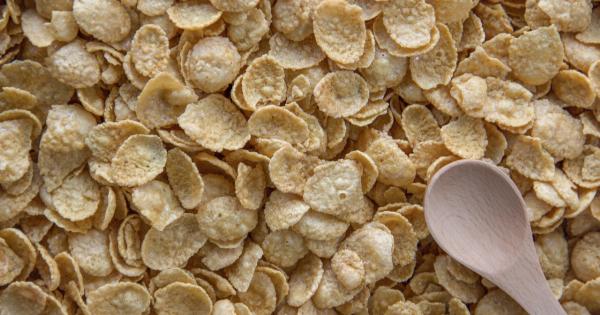When it comes to maintaining a healthy diet, essential minerals play a significant role in ensuring the proper functioning of our bodies.
One such mineral is magnesium, which is involved in numerous biochemical reactions and is essential for overall well-being. In this article, we will explore the role of magnesium in your daily diet and discuss its food sources.
Importance of magnesium
Magnesium is an essential mineral that is required for the proper functioning of our bodies. It plays a vital role in various physiological processes, including energy production, muscle function, and the synthesis of DNA and proteins.
It also contributes to nerve impulse transmission and helps maintain a healthy immune system.
Magnesium is involved in more than 300 enzymatic reactions in our bodies, including the metabolism of carbohydrates, fats, and proteins.
It is also crucial for the synthesis of glutathione, a powerful antioxidant that helps protect our cells from oxidative damage. Additionally, magnesium aids in regulating blood pressure, maintaining a steady heartbeat, and supporting bone health.
Recommended daily intake of magnesium
The recommended daily intake of magnesium varies depending on age and gender. Adult males generally require around 400-420 mg of magnesium per day, while adult females need about 310-320 mg.
Pregnant and lactating women may require slightly higher amounts of magnesium.
It’s essential to ensure that you meet your daily magnesium requirements to support optimal health and well-being.
However, it’s crucial to note that individual needs may vary, so consulting with a healthcare professional is always a good practice.
Food sources of magnesium
While magnesium can be obtained from various dietary sources, it’s essential to focus on consuming foods rich in this mineral. Here are some excellent food sources of magnesium:.
1. Spinach
Packed with essential vitamins and minerals, spinach is an excellent source of magnesium. Just one cup of cooked spinach provides approximately 157 mg of magnesium, making it a great addition to your diet.
2. Almonds
Almonds are not only a delicious and nutritious snack but also a fantastic source of magnesium. A 1-ounce serving of almonds contains about 80 mg of magnesium, along with healthy fats and fiber.
3. Avocado
Known for their healthy fats, avocados are also a good source of magnesium. Including avocados in your diet can contribute to your daily magnesium intake, along with providing other essential nutrients such as potassium and vitamin K.
4. Black beans
Black beans are not only a great source of plant-based protein but also an excellent source of magnesium. One cup of cooked black beans contains approximately 120 mg of magnesium, making them a nutritious addition to meals or salads.
5. Pumpkin seeds
Pumpkin seeds are a tasty and nutritious snack that is rich in magnesium. A 1-ounce serving of pumpkin seeds provides around 150 mg of magnesium, making them an excellent option to include in your diet.
6. Quinoa
Quinoa is a versatile whole grain that is not only high in protein and fiber but also a good source of magnesium. One cup of cooked quinoa contains approximately 118 mg of magnesium.
7. Dark chocolate
Indulging in dark chocolate can provide you with not only a delicious treat but also a decent amount of magnesium. Approximately 1 ounce of dark chocolate (70-85% cacao) contains around 65 mg of magnesium.
8. Salmon
Salmon is a heart-healthy fish that is not only rich in omega-3 fatty acids but also a good source of magnesium. A 3-ounce serving of salmon provides approximately 36 mg of magnesium.
9. Yogurt
Yogurt is not only a good source of calcium and probiotics but also contains magnesium. Including yogurt in your daily diet can help you meet your magnesium requirements, along with promoting gut health.
10. Bananas
Bananas are not only a convenient and delicious snack but also contain magnesium. A medium-sized banana typically contains about 32 mg of magnesium, making it a great option to include in your diet.
Ensuring optimal magnesium intake
While the abovementioned foods are excellent sources of magnesium, it’s important to ensure that you consume a varied diet that includes other magnesium-rich foods.
This will help you meet your daily magnesium requirements and support overall health.
If you find it challenging to obtain sufficient magnesium through your diet alone, you may consider taking magnesium supplements after consulting with a healthcare professional.
However, it’s important to note that getting nutrients through whole foods is generally preferred over supplements.
Conclusion
Magnesium plays a critical role in various bodily functions and is essential for optimal health. Incorporating magnesium-rich foods into your daily diet is an excellent way to ensure that you meet your daily magnesium requirements.
By doing so, you can support the proper functioning of your body’s systems and promote overall well-being.





























